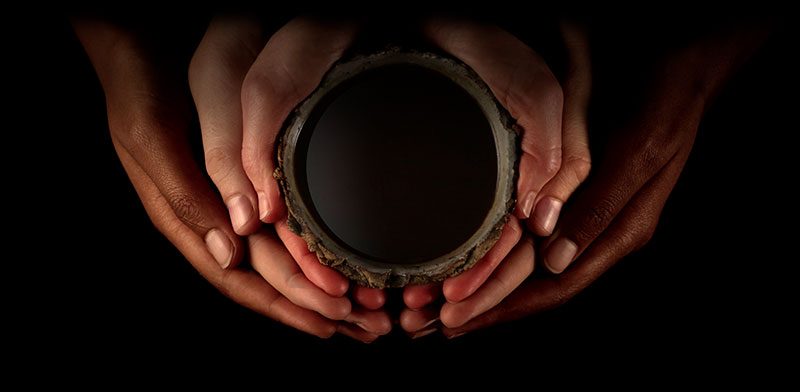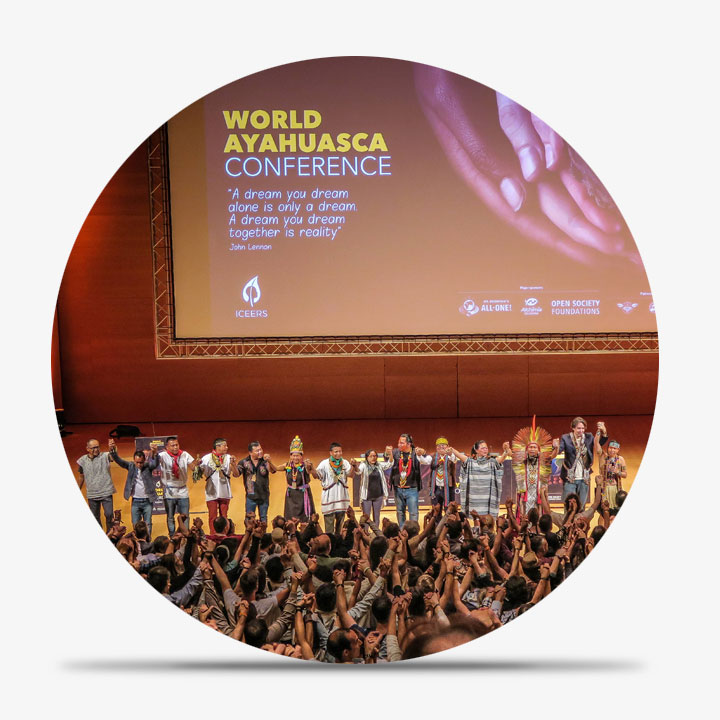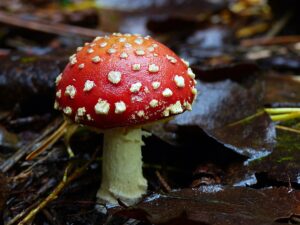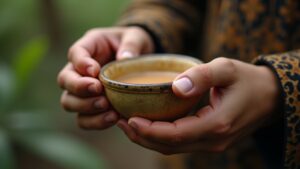
Navigating the challenges
of the globalization of
Traditional Indigenous Medicines
Upcoming Events & Courses
World Ayahuasca Forum

Join the first-ever global forum of ayahuasca cultures — a historic convergence of the Indigenous Ayahuasca Conference and the World Ayahuasca Conference.
This gathering opens space for intercultural and interinstitutional dialogue, knowledge exchange, and shared reflection at the intersection of science, culture, and the arts.
Be part of this unprecedented moment.
Sign up to be the first to know when registration opens.
ICEERS Integration Training

ICEERS launched the Integration Training Program to disseminate the expertise gathered from its Support Center. In contrast to other programs currently on the market, the ICEERS Integration Program is unique in its practical approach.
This course is designed to provide you with the framework to design and implement an integration protocol. You will learn techniques and tools that will increase your capacity to support people in their integration processes.
The Renaissance of Relationship
The key to a collective healing revolution does not lie in the renaissance of substances, but in the renaissance of relationship. Our relationship with ourselves, each other, Indigenous peoples, and Life itself.
The core of our work is to weave relationships of trust and alliance among plant medicine and psychedelic community representatives, Indigenous leaders, academic experts, global change makers, and government agencies – bringing our collective wealth of knowledge(s) and experience together.
What are you interested in?
The ICEERS Academy “Increasing the Safety of Ayahuasca Sessions” course offers a unique perspective on safe and responsible practices around ayahuasca and other ancestral medicines. This advanced harm reduction program is designed for facilitators, participants, plant ceremony organizers, and anyone else interested in ceremonial and traditional plant practices. The curriculum provides the necessary tools to ensure safe sessions while respecting ethical principles and safeguarding the well-being of participants.
The course lasts six months and provides access to health forms, emergency protocols, guides, and other documents to reduce risks and increase the safety of ayahuasca sessions.
Registration is open until May 1st.
ICEERS' Work
ICEERS works globally for the health, safety, and fundamental rights of all communities involved. Our goal is to evolve society’s relationship with these medicines and traditional knowledge-holding communities so that together we can create systemic change toward unified humanity and culture of Life.

Alliance and Community Building
We have co-hosted spaces for dialogue and community building, including international conferences, expert strategy meetings, and working groups. We have built strategic alliances with Indigenous partners with the goal of unifying people and knowledge(s) together through shared objectives.
Supporting the Needs of the Plant Medicine Community
Our Legal Defense Program (ADF) has supported over 300 legal cases in 45 countries through legal advice, technical reports, and expert witnesses.
Our Support Center has provided crisis support to over 1,200 people in need and our Medical Interactions Service fields inquiries about interactions between plants medicines, pharmaceutical drugs, and medical treatments.
ICEERS works to pollinate a network of support for local and international plant medicine communities that is internationally coordinated and publicly funded as an essential service – accessible to anyone in need.

Education
We provide evidence-based, real-world information on ayahuasca, iboga, and other ethnobotanical practices. We also examine their globalization — safety, ethics, legality, policy, science, and more — based on information gathered from the global community. This work includes technical reports, articles, manuscripts, webinars, trainings, a risk reduction course for ayahuasca facilitators, and integration training for mental health professionals.
Science
In collaboration with international research teams, we have published more than 100 papers in top-tier peer-reviewed journals and books. These scientific papers have served as a basis for legal proceedings and advocacy work across the globe. We are also conducting the world’s first ibogaine clinical trial for opioid dependency in a pioneering harm reduction center in Catalonia.

Policy & Human Rights
We have organized and participated in over 20 United Nations processes and events, including the UN’s International Guidelines on Human Rights and Drug Policy. We authored important bills for policymakers in different countries in the European Union and Latin America, and engaged in national policy processes that are changing the future of ethnobotanicals.
Recent Articles
Spotlighting Ayahuasca Statistics in Four Countries: Colombia, USA, Spain, and the Netherlands
Latest Research
Frequently Asked Questions
Since 2010, the International Center for Ethnobotanical Education, Research, and Service (ICEERS) has led efforts to evolve the relationship of Western societies with traditional plant medicines and the cultures they are part of. Our goal is a future in which ceremonial plant work is recognized and can be safely and legally practiced while being in right relationship with the Indigenous knowledge holders. ICEERS collaborates with plant medicine community representatives, Indigenous leaders, government agencies, law enforcement, and NGOs. Alliance building is imperative to develop successful strategies to guarantee the health, safety, and fundamental rights of all communities involved.
If you want to learn more about our organization, you can find further information here.
ICEERS is comprised of a multidisciplinary team with extensive experience in fields such as pharmacology, law, political science, psychology, communications, human rights, anthropology, among others. Our team is made up of people with six doctorates and 16 master’s degrees. We collaborate with universities, hospitals, associations, foundations, consortiums, governmental institutions, and Indigenous groups. Learn more about our collaborators and sponsors.
“Ethnobotany” is the science that studies the relationship between human cultures and plants. It can also refer to the knowledge that different cultures have acquired over time about the properties of various botanicals. In addition, psychoactive plant species with a longstanding relationship with different cultures are considered “ethnobotanicals”. Nearly 60% of modern medicines, from aspirin to the first anesthesia, originate from traditional medicinal plants. In fact, many of the components of today’s drugs are based on natural products that humans have worked with for centuries or millennia. Although science has only recently begun to take an interest in plants such as iboga or ayahuasca, their long standing relationship with humanity supports the essential fact that when humans have worked with plants for centuries, it is generally because they are considered “effective.”
No. ICEERS specifically warns against using ethnobotanicals when it violates the law, practices are conducted without proper professional guidance and/or supervision, or careful personal evaluation of the potential hazards and risks is lacking. The information provided by ICEERS is in no way intended to encourage the use of ethnobotanicals. You can find more information in the footer of this website and in Point 5.1 of the terms of use page.
No. ICEERS never endorses or recommends any ethnobotanical center or facilitator. We do not offer psychoactive plant experiences, nor do we recommend centers or professionals offering sessions or retreats. This is clearly stated on our contact page, as well as on other parts of our website here and here. As a harm reduction strategy, we provide psychoactive plant information and a free good practices guide so that people can make their own choices and learn how to mitigate risks.
No, ICEERS is not a membership-based organization. ICEERS is a private, non-profit foundation with United Nations consultative status (ECOSOC). We are not an association. We offer information and support services free of charge, and our work is supported through donations. While people at times may make recurring donations, they are not considered a form of membership or compensation. You can find more information about our legal status here.












